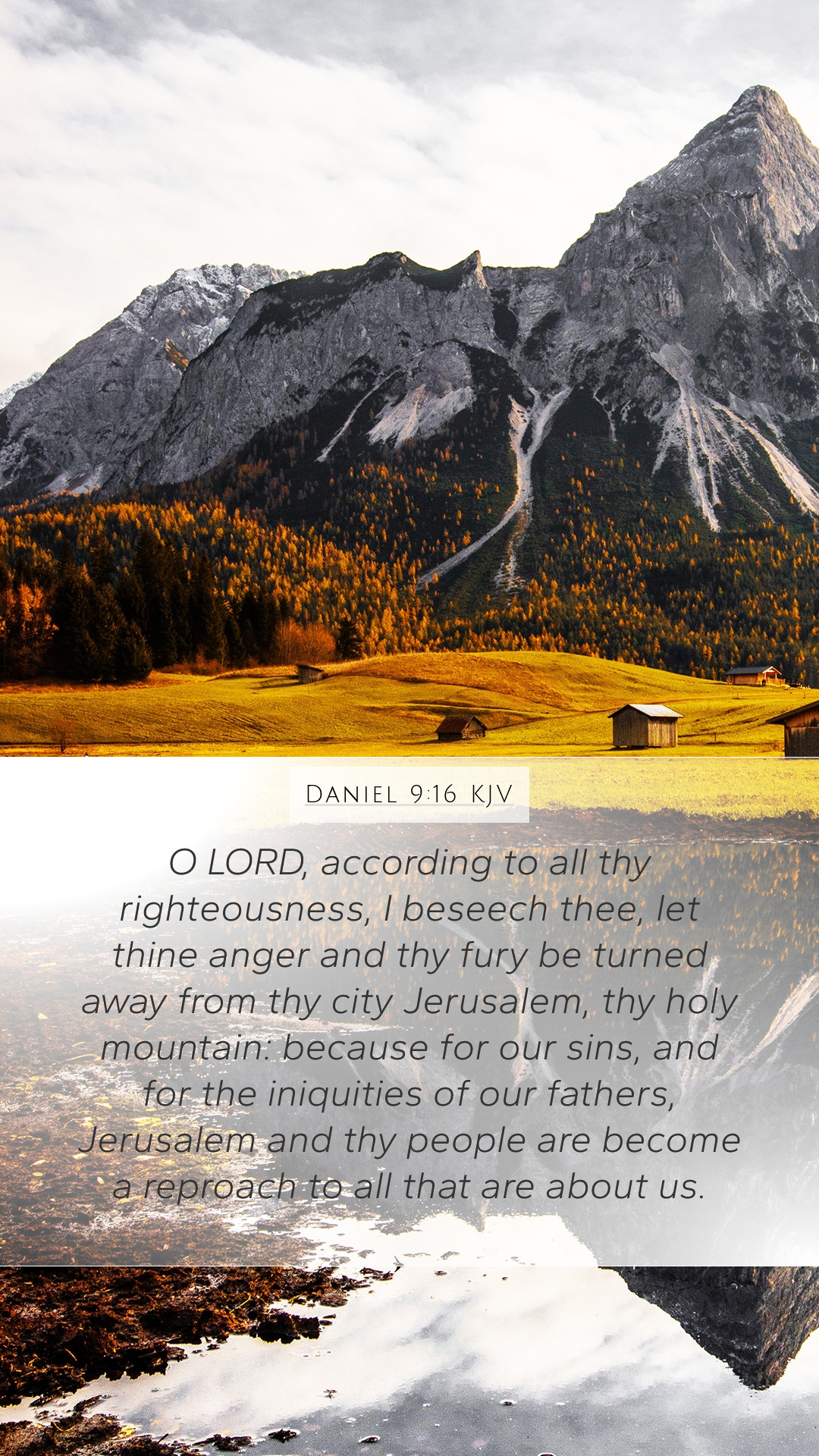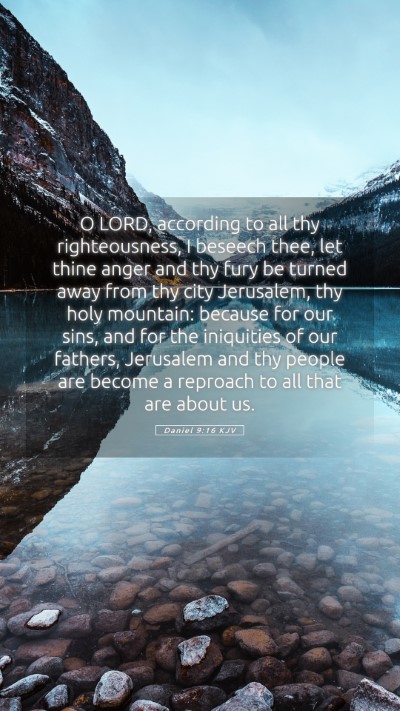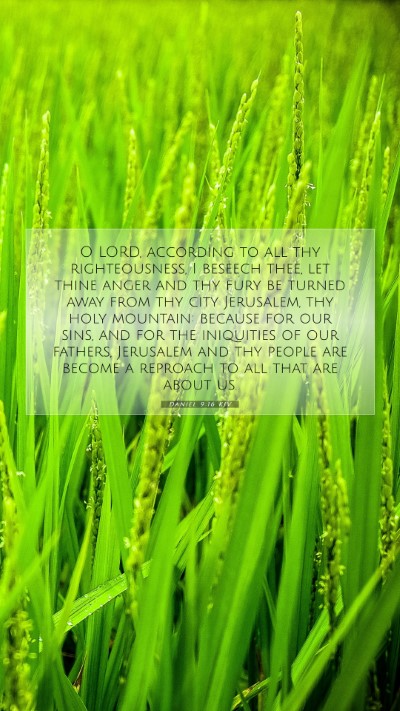Bible Verse Commentary: Daniel 9:16
Verse: "O Lord, according to all thy righteousness, I beseech thee, let thine anger and thy fury be turned away from thy city Jerusalem, thy holy mountain: because for our sins, and for the iniquities of our fathers, Jerusalem and thy people are become a reproach to all that are about us."
Summary of Interpretations
In this verse, the prophet Daniel presents a heartfelt plea to God, recognizing the consequences of sin and the need for divine mercy. The verse encapsulates profound themes of repentance, the seriousness of sin, and the quest for restoration.
Biblical Context
Historical Context: The backdrop of Daniel's plea occurs during the Babylonian captivity of the Jews. The city of Jerusalem, once the center of worship and a symbol of God’s covenant with Israel, lay in ruins. This cultural and spiritual desolation prompts Daniel's fervent prayer.
Theological Context: Daniel identifies God’s righteousness as the foundation for his appeal, acknowledging that the suffering of the Israelites is a direct result of their disobedience. By recalling their sins and the iniquities of their fathers, Daniel emphasizes collective accountability.
Insights from Commentaries
-
Matthew Henry:
This commentary highlights that Daniel approaches God with humility and recognition of His righteousness. Henry notes that true repentance includes an honest admission of guilt and a plea for God’s mercy, which Daniel exemplifies.
-
Albert Barnes:
Barnes explains that Daniel acknowledges the seriousness of the nation’s sins and the resultant judgment. He emphasizes how in times of national sin, it’s crucial for leaders and believers to intercede on behalf of their people, seeking restoration.
-
Adam Clarke:
Clarke remarks on the term "reproach" and its implications. He discusses how Jerusalem's fallen state serves as a warning to other nations about the consequences of turning away from God, touching on the concept of divine justice.
Thematic Exploration
1. The Nature of Repentance: Daniel’s appeal demonstrates the essence of true repentance, which involves not only acknowledging one’s own sins but also the communal failures of a society. This teaches about accountability and the collective need for God's grace.
2. Divine Justice and Mercy: The verse illustrates the tension between God’s justice and mercy. Although sin warrants punishment, as seen in the desolation of Jerusalem, there is hope for restoration through earnest prayer and repentance.
3. The Importance of Prayer: Daniel’s prayer serves as a model for believers on how to approach God, focusing on His righteousness while being sincere about their own sins and failures.
Application of the Verse
For contemporary believers, Daniel 9:16 can lead to introspection regarding personal and communal sins. It serves as a reminder of the importance of prayer in seeking God's mercy and guidance, as well as the need to intercede for others. By recognizing the consequences of actions, believers can strive to align their lives more closely with God’s will.
Cross References
- 2 Chronicles 7:14: A call to humility and prayer in times of need.
- Lamentations 3:22-23: Emphasizing God’s mercies and faithfulness even amid judgment.
- Nehemiah 1:6-7: A similar prayer for Jerusalem that reveals the spirit of intercession.
Conclusion
Daniel 9:16 serves not only as a powerful reminder of the devastation caused by sin but highlights the irresistible call to repentance and the hope of restoration through fervent prayer. Each believer is invited to reflect on the state of their own life in relation to God’s holiness while seeking to understand the broader implications of sin and grace within their community.


